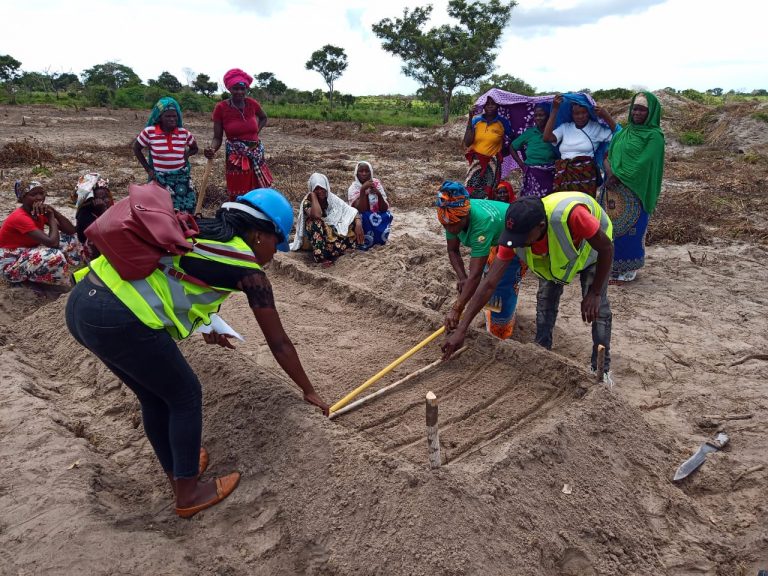Agricultural Production in Palma
In partnership with the private sector, the Catalisa project revives agricultural production in the Palma district, in partnership with the company Veggie Basket, Financed by TotalEnergies and implemented by Technoserve.
The province of Cabo Delgado has su¬ered from several terrorist attacks throughout the last few years, with greater emphasis on the districts of Muidumbe and Palma, where in 2021 several investors including TotalEnergies, suspended their activities due to insecurity in the region. Currently, the government authorities supported by other forces are ghting to retake control of the scenario, and life in Palma is slowly returning to normal, notable by the gradual return of displaced populations and companies operating in di¬erent sectors of the economy. This return is accompanied by the demand for food products, which currently arrive in the northern region, either from the southern corridor of Cabo Delgado province or from other provinces such as Nampula, Tete and Maputo, in quantities that are not su cient to supply the needs of the local market.
Within this context, Veggie Basket, a commercial partner of the Catalisa project, restarted earlier this year its vegetable production in the Afungi area, which previously had been suspended due to insecurity. Alfredo Soares, owner of the company Veggie Basket, saw the current Palma market as a business opportunity, involving small farmers in his supply chain, and focusing on rebuilding the local vegetable market.
The Catalisa project, in partnership with Veggie Basket, has also created a demonstration plot to empower different communities in Cabo Delgado, capitalizing on the entrepreneurial spirit of the local population by showing them new technologies and good production techniques that allow them to learn and produce on a commercial scale.

At this phase, Veggie Basket and its partners were involved in opening access roads; opening of cultivation ‑elds; demarcation and assembly of greenhouses. Veggie Basket’s operations currently involve around 70 people, both men and women, from different localities in the district of Palma, namely Senga, Mangune, Eduardo Mondlane, Quitunda and Macala, as well as four producer associations – Ulissi, Quilala, Waculima and Josina. The representatives of these communities are being trained on best practices for vegetable production, with greater emphasis on commercial production. Eventually, the best producers will be selected to receive technical assistance and funding, as well as kits that include high-quality seeds to begin producing in larger scale in their own farms. This action aims to revive the local economy, through vegeta- ble production and the re-establishment of market linkages, creating jobs for the surrounding community members and strengthening agribusinesses, with the support of Catalisa’s partner company, Veggie Basket.
The Catalisa project, implemented byTechnoServe, and financed by TotalEnergies,is contributing to the private sector in Cabo Delgado to create a sustainable market for the produc- tion, processing, distribution and sale of vegetables, chicken and eggs, and is driving the growth of young entrepreneurs and facilitating linkages to the formal labor market. The project's impact to date has resulted in the provision of locally produced vegetables throughout the year and commercial egg production, for the first time in the province, as well as access to more diversified foods for local populations, and increased incomes for local entrepreneurs, smallholder and commercial enterprises along the horticultural and poultry value chains.
Veggie Basket focuses on the production and marketing of agricultural products, with emphasis on vegetables. In addition to products from its production fields, the company establishes the connection between small producers and the market. Veggie Basket buys and resells products from third parties, with a greater emphasis on small local producers, thus ensuring the easing of market access barriers for smallholder farmers.
TechnoServe helps people lift themselves out of poverty by harnessing the power of the private sector. A leading nonprofit organization operating in almost 30 countries, we work with hardworking women and men in the developing world to build competitive farms, businesses, and industries. By linking people to information, capital, and markets, we have helped millions to create lasting prosperity for their families and communities.